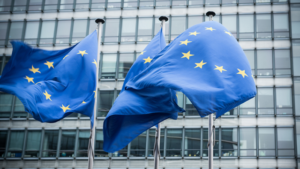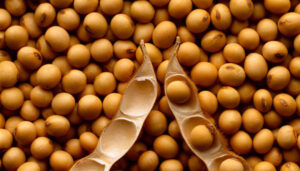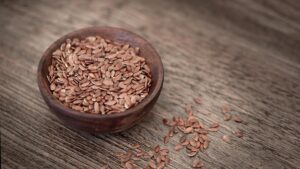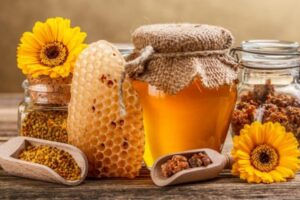
The National Association of Lobbyists of Ukraine (NALU) is initiating an official appeal to the European Parliament regarding the rules for registering Ukrainian organizations in the EU Transparency Register.
“The National Association of Lobbyists of Ukraine will soon send an official appeal to the European Parliament requesting clear and unambiguous clarification on which Ukrainian organizations are required to register in the European Union Transparency Register in order to interact with European institutions,” she told the Interfax-Ukraine news agency.
The association will also raise the question of whether Ukrainian entities—public organizations, professional associations, business associations, consulting companies, charitable foundations, and other structures—should undergo additional registration and obtain lobbyist status when working with EU bodies in accordance with the requirements of European legislation.
The association notes that with the entry into force of Ukraine’s Law on Lobbying and the state’s active course towards European integration, the issue of harmonizing Ukrainian lobbying practices with European Union approaches is becoming critically important. The lack of clear instructions and a unified position may create legal uncertainty for Ukrainian organizations seeking to operate within the EU legal framework and represent Ukraine’s interests at the international level.
“We seek to obtain an official explanation so that Ukrainian organizations can act in accordance with European rules, avoid risks, and ensure maximum transparency in their activities. This is also important for protecting Ukraine’s image as a state that is moving towards civilized interaction and open advocacy,” notes the NALU.
The explanations received from the European Parliament are planned to be published and forwarded to Ukrainian institutions, businesses, and public organizations as an official guideline for further work with EU bodies.

The tenth annual meeting of the Ukraine-EU Association Committee in Trade (ACTA) was held in Brussels, where issues related to Ukraine’s export duties on soybeans and rapeseed, as well as temporary restrictions on the export of unprocessed timber, were discussed, according to the Ministry of Economy, Environment, and Agriculture.
Ukraine informed its partners that a 10% export duty on soybeans and rapeseed was introduced in 2025 to support the development of agricultural processing within the country. At the same time, agricultural producers who export their own products are completely exempt from paying duties. Therefore, the mechanism introduced does not create additional financial costs for them.
“It is precisely through the proceeds from export duties on soybeans and rapeseed that the state will fill a special budget fund, from which programs to support agricultural producers are financed. First and foremost, these are programs for frontline territories, as well as grants for processing, greenhouses, orchards, compensation for agricultural equipment, insurance against military risks, and other key instruments. This allows us to maintain support for farmers even in wartime,” emphasized Deputy Minister of Economy, Environment, and Agriculture Taras Vysotsky.
The meeting participants also discussed decisions on regulating timber exports, including a temporary ban on the export of unprocessed timber (except pine) and the establishment of zero quotas until the end of 2025.
The Ukrainian side stressed that these measures are aimed at meeting the needs of defense and critical infrastructure, as well as reducing risks to the environment in wartime. At the same time, these measures prevent a shortage of raw materials on the domestic market.
It was separately noted that the Verkhovna Rada of Ukraine is considering draft laws on the formation of an updated timber market model, taking into account security challenges.
The Ukrainian side stressed the importance of continuing an open dialogue with the EU on all temporary measures that the state is applying during the period of martial law. At the same time, maintaining access for Ukrainian products to the European market remains one of the key factors for economic stability and support for national production.
The Ukraine-EU Association Committee in Trade Composition (ACTC) was established in accordance with Article 465 (4) of the Association Agreement between Ukraine and the EU to consider issues related to Section IV “Trade and Trade-Related Matters” of the Association Agreement. The CATS operates in accordance with the rules of procedure approved by Decision No. 1/2014 of the Association Council between Ukraine and the EU of 15 December 2014 “On the adoption of the rules of procedure of the Association Council, the Association Committee and its subcommittees”.
The Trade Committee meets annually and includes representatives from Ukraine and the European Commission.
As reported, a 10% export duty on soybeans and rapeseed for traders has been in effect in Ukraine since September 4, 2025. Agricultural producers who export their own products, or agricultural cooperatives that export the products of their members, are exempt from this duty, provided that the origin of the goods is documented. Until 2030, the duty will be reduced by 1% each year until it reaches 5%.
The Cabinet of Ministers has temporarily banned the export of unprocessed wood (except pine) until December 31, 2025, setting a zero quota for its export. This is done to provide the domestic market with raw materials, support Ukrainian woodworking enterprises, and stabilize the industry.

According to Eurostat data on material deprivation in the “Housing in Europe – 2025 edition” review, around 9% of the European Union population in 2024 could not afford to heat their homes adequately.
The EU’s statistical office notes that the problem of energy poverty and high utility costs remains significant for millions of households, despite the support measures taken after the 2022–2023 energy crisis.
Low-income households and residents of old, energy-inefficient housing in a number of Eastern and Southern European countries remain particularly vulnerable.

The proportion of European Union residents living in their own homes in 2024 was 68%, while 32% of the population rented a house or apartment, according to the interactive review “Housing in Europe – 2025 edition” by the EU statistical office Eurostat.
According to the data, the highest rates of home ownership were recorded in Romania (94% of the population live in their own homes), Slovakia (93%), Hungary (92%), and Croatia (91%). The only EU country where the majority of the population prefers to rent is Germany, where 53% of residents are tenants. In Austria, the share of tenants is 46%, and in Denmark, it is 39%.
Eurostat notes that in all EU countries except Germany, ownership remains the dominant form of housing, although in large cities and capitals, the proportion of rentals is traditionally higher than in small towns and rural areas.

In Ukraine, oil flax remains a niche crop, but its gross harvest in the 2025-2026 marketing year (MY) will amount to 66 thousand tons, which is the highest result since the 2017/18 MY, according to the information and analytical publication UkrAgroConsult.
“Production is subject to fluctuations influenced by market factors and weather conditions. Since 2020, there has been a steady expansion of acreage. Growth is driven by demand from the EU, the main importer of flax. (…) The combination of expanded acreage and improved yields has been decisive. In the 2024/25 MY, there has been a partial recovery in yields, which are still below the crop’s potential,” analysts explained.
Experts noted that exports remain a key driver of the market — more than 80% of the Ukrainian flax harvest in 2024/25 MY is sent abroad. During the years of war, this share has more than doubled.
The main destination for flax sales is the EU (Italy, Poland, and Belgium are the top importers). After the start of the full-scale war, EU countries significantly reduced their purchases of Russian flax, reorienting themselves to alternative suppliers from Ukraine, Kazakhstan, and Canada.
At the same time, after peaking in 2023/24 MY (over 70 thousand tons), shipments from Ukraine decreased by approximately 24% in 2024/25 MY.
“The Ukrainian oil flax market is entering a phase of stable recovery. The crop is gradually regaining its position in the crop structure, forming a new niche for small and medium-sized agricultural producers. With support for exports and the development of processing, flax has the potential to establish itself as a promising alternative crop for the northern regions of the country, which are increasingly facing weather risks,” UkrAgroConsult concluded.

In the first 10 months of 2025, Ukraine exported 36,400 tons of honey worth over $84 million, with more than 70% going to European Union countries, Deputy Minister of Economy, Environment, and Agriculture Taras Vysotsky said during a forum on the European integration of Ukraine’s honey sector.
He noted that Ukraine is traditionally among the top five global honey exporters, continuing to develop beekeeping even in the difficult conditions of war.
“Ukraine is one of the leaders in honey exports to the EU. This testifies to the high quality, trustworthiness, and competitiveness of our products. The development of digital tools, modernization of production, and strengthening of quality control are gradually creating conditions for scaling exports not only to the EU but also to the markets of Asia and the Middle East,” he wrote on Facebook.
At the same time, Vysotsky stressed that Ukraine should ensure full compliance with EU standards and improve production traceability: clearly record where the honey comes from, which apiaries produced it, and how its quality was checked. This approach will open up new and long-term market opportunities for Ukrainian beekeepers.
According to Vysotsky, there are currently 62,697 apiaries and over 2.84 million bee colonies in the Apiary Passport Register.
“According to experts, integration into the EU market could increase Ukrainian honey exports by 25-30% in the next three years. Our task is to do everything possible to make this forecast a reality,” the deputy minister concluded.